Six researchers at Washington University in St. Louis are being honored as outstanding scientists by the Academy of Science-St. Louis.
University recipients of this year’s honors are faculty members Steven Teitelbaum, Ralph Quatrano, Jennifer K. Lodge, Samuel Achilefu, Charles M. Hohenberg and Gautam Dantas.
Also honored with a Science Leadership Award is the CORTEX Innovation Community, of which Washington University is a valuable member. Other CORTEX members include BJC HealthCare, University of Missouri-St. Louis, Saint Louis University and the Missouri Botanical Garden.
Each year, the academy seeks nominations of outstanding women and men in science, engineering and technology who are known worldwide for their scientific contributions to research, industry and quality of life. Those recognized also have a record of excellence in communicating with the public and/or mentoring colleagues.
The awards, which will be given at a dinner Thursday, April 9, represent recognition by St. Louis’ scientific community, the Academy’s Board of Trustees and members of the Academy of Science-St. Louis.
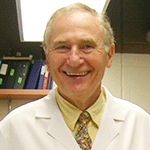
Steven L. Teitelbaum, MD
Teitelbaum, a world-renowned bone biologist, will receive the Academy of Science’s Peter H. Raven Lifetime Achievement Award for his research of cellular mechanisms that lead to osteoporosis.
The Wilma and Roswell Messing Professor of Pathology and Immunology and a professor of medicine at Washington University School of Medicine in St. Louis, Teitelbaum has produced an extensive collection of important discoveries about the cells and regulatory factors that control the renewal of the skeleton, which is regularly demolished and rebuilt to keep it strong.
He also has been a leader in development and adaptation of new techniques for diagnosis and treatment of bone disease. When French physicians developed the first technique for extracting bone samples to diagnose disease, he traveled to France to learn the technique and brought it back to St. Louis.
A strong advocate for scientific freedom, Teitelbaum speaks out often about the potential benefits of stem cells and cloning, and opposes legal prohibitions on the use of these and other scientific tools and techniques.
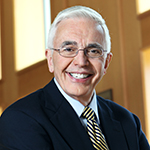
Ralph Quatrano, PhD
Quatrano will receive the Science Leadership Award, which recognizes distinguished individuals who have played important leadership roles in the development of science and scientists in the St. Louis area.
Quatrano, who will step down as dean of the School of Engineering & Applied Science on June 30, has had a distinguished career that includes leadership positions at several top universities, in industry and in entrepreneurship. He is internationally renowned for his work on the hormonal regulation of gene regulatory networks in model organisms and in crop plants to understand how to better engineer plants to grow in water-scarce environments.
His previous leadership roles at Washington University include that of chair of the Department of Biology in Arts & Sciences, during which time he directed a 10-year research program in plant science between Monsanto and the university. He also was director of the Division of Biology and Biomedical Sciences, as well as dean of the Faculty of Arts & Sciences. He also co-founded MOgene LLC, a St. Louis-based genomic services company.
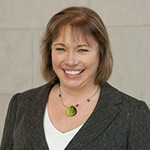
Jennifer K. Lodge, PhD
Lodge, the university’s vice chancellor for research and the associate dean for research at the School of Medicine, will receive a Trustees Award. The honor recognizes outstanding contributions to the Academy of Science-St. Louis in its mission of promoting the understanding and appreciation of science, engineering and technology.
Lodge, who is also a professor of molecular microbiology, is the chief officer responsible for the university’s research mission, overseeing more than $600 million in annual sponsored research and managing the development of research policies, grants and contracts, and the continuing education of faculty and staff regarding research regulations.
A Washington University graduate, Lodge was named a fellow of the American Association for the Advancement of Science in 2011 and a fellow of the American Academy of Microbiology in 2010. She continues to pursue NIH-funded research on mechanisms of fungal pathogenesis, anti-fungal drug discovery and vaccine development.
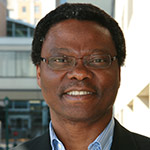
Samuel Achilefu, PhD
Achilefu, chief of the Optical Radiology Laboratory at the School of Medicine, will receive a Fellows Award in recognition of his innovative work in molecular imaging and targeted therapy.
Achilefu, who also is a professor of radiology, of biomedical engineering and of biochemistry and molecular biophysics, leads a team that has identified a novel molecular agent that specifically targets and remains longer in cancer cells than other current options, providing a unique opportunity to zero in on most tumors, using a single imaging agent.
His team has developed high-tech goggles that help surgeons visualize cancer cells. The cells, which are notoriously difficult to see, glow blue when viewed through the eyewear, helping to ensure that no stray tumor cells are left behind during surgery. His group also is developing a light-based cancer therapy aimed at overcoming the difficulty in reaching tumors in deep tissue with light.
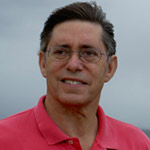
Charles M. Hohenberg, PhD
Hohenberg, professor of physics in Arts & Sciences, will receive a James B. Eads Award, which recognizes a distinguished individual for outstanding achievement in engineering or technology.
In 1975, Hohenberg designed and built a unique noble gas mass spectrometer, one capable of single atom detection and of analyzing the isotopic structures of samples containing only a few thousand noble gas atoms. Focused laser heating allows the noble gases contained in individual mineral grains to be routinely studied.
Applied to a variety of problems, this instrument has opened up new research in many areas. It has allowed Hohenberg and his colleagues to better delineate early solar system chronology using a precise I-Xe dating method he pioneered. He used it to decipher irradiation records of individual meteoritic grains revealing the active early (T-Tauri) Sun, to determine the ages of lunar craters, to put an upper limit on the mass of the electron neutrino, and to analyze tiny particles from a comet nucleus and the noble gases from the solar wind.
He also has been a key science team member on NASA missions, including the Stardust and Genesis missions.
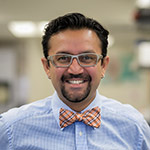
Gautam Dantas, PhD
Dantas, associate professor of pathology and immunology and of biomedical engineering, will receive the Innovation Award, which recognizes a scientist or engineer 40 or younger, who has demonstrated exceptional potential for future accomplishments in science, engineering or technology.
Dantas has used the latest techniques for genetic sequencing and analysis to study the origins and evolution of bacterial resistance to antibiotics. Bacteria can share genes much more easily than higher organisms, and Dantas has pioneered methods that let scientists trace the origin and historic spread of genes that help bacteria survive exposure to antibiotics.
He also is working to use these techniques to predict the future spread of these antibiotic resistance genes and is using that information to advocate against the overuse of these drugs in clinical care and in agriculture.